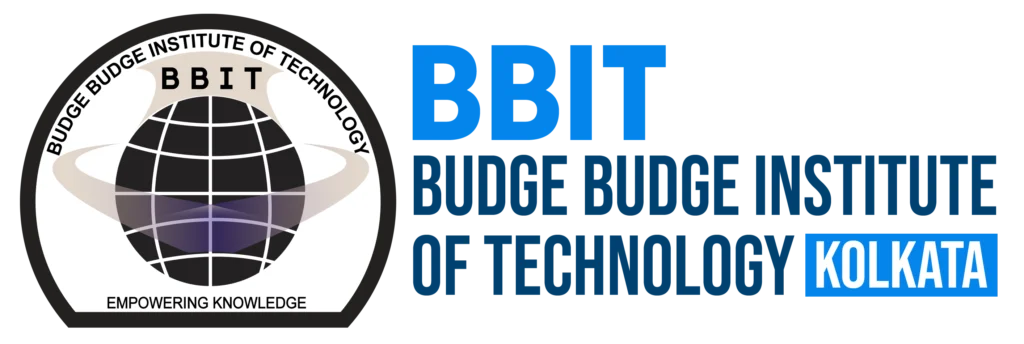B.Tech in Information Technology (IT)
DURATION: 3 YEARS
Become Leaders of Tomorrow!
This program at BBIT College, Kolkata, produces graduates with a comprehensive understanding of Information Technology through a robust curriculum and hands-on learning in specialized technologies. It develops competence to meet industry requirements by focusing on using, maintaining, and improving computer systems and leveraging technology to solve business processes.

Programme Outcomes:
Engineering Knowledge
Utilize mathematics, science, engineering fundamentals, and specialized engineering knowledge to address and solve complex engineering problems effectively.
Problem Analysis
Identify, formulate, review research literature, and analyze intricate engineering issues, drawing well-founded conclusions based on mathematical, scientific, and engineering principles.
Design and Development of Solutions
Develop solutions for complex engineering challenges, creating system components or processes that meet specified needs while considering public health, safety, cultural, societal, and environmental factors.
Conduct Investigations
Employ research-based methods, including experimental design, data analysis, and information synthesis, to investigate complex problems and derive valid conclusions.
Modern Tool Usage
Select and apply appropriate techniques, resources, and modern engineering and IT tools, including prediction and modeling, to complex engineering tasks, while recognizing their limitations.
Engineer and Society
Use contextual knowledge to assess societal, health, safety, legal, and cultural issues, understanding the responsibilities associated with professional engineering practice.
Environment and Sustainability
Evaluate the impact of engineering solutions on society and the environment, demonstrating awareness of and commitment to sustainable development practices.
Ethics
Adhere to ethical principles and uphold professional ethics, responsibilities, and norms within engineering practice.
Individual and Team Work
Function effectively both independently and as a member or leader in diverse and multidisciplinary teams.
Communication
Communicate complex engineering concepts effectively to the engineering community and the public, including writing clear reports, designing documentation, making presentations, and giving and receiving instructions.
Project Management and Finance
Apply engineering and management principles to effectively manage projects and work within multidisciplinary teams, demonstrating a sound understanding of project management and financial considerations.
Life-long Learning
Recognize the importance of ongoing learning and be prepared to engage in independent and continuous education in response to technological advancements and changes.
Programme Educational Objectives:
Equip students with fundamental knowledge and essential skills in core engineering subjects to develop effective computing solutions through creativity and logical reasoning.
Prepare students to deliver professional and proficient services in the field of computer science, utilizing knowledge of cutting-edge technologies to excel in their careers.
Foster leadership qualities and integrate ethics, teamwork, effective communication, and time management into the professional practice of students.
Encourage students to engage in research activities and continue their education, keeping pace with market demands and advancements in the field of computing.
Program Specific Objectives (PSOs):

Critically analyze complex power system scenarios and propose solutions using acquired theoretical and practical knowledge.

Work on defined projects by interpreting power system data to provide real-time solutions to system issues

Identify optimal solutions to enhance power transfer capability, improve power quality, and ensure reliability.
This program is ideal for individuals passionate about manufacturing and designing power systems, who possess strong problem-solving abilities and a desire to pursue rewarding careers in electrical system design, development, and maintenance, ensuring quality, safety, reliability, and sustainability.
Programme Specific Outcomes:
Provide students with a comprehensive understanding of mathematical, scientific, computing, and basic engineering fundamentals essential for formulating, analyzing, and solving hardware/software engineering problems, as well as pursuing advanced studies or research.
Educate students to achieve proficiency in core areas of Information Technology and related engineering fields, enabling them to analyze, design, and synthesize data and technical concepts to create innovative solutions for real-life problems.
Instill professionalism in students, preparing them to work effectively in multidisciplinary teams and diverse professional environments, while relating engineering issues to societal impacts, the global economy, and emerging technologies.
Foster a commitment to life-long learning, develop strong oral and written communication skills, introduce students to ethical codes and guidelines, and encourage leadership, entrepreneurship, and good citizenship.
Potential Job Roles:
Software Engineering
Software engineers work on creating complex solutions for various applications across different sectors. Unlike programmers, who focus on coding, software engineers design the framework and architecture that programmers use to implement solutions.
Graphic Designing
Graphic designers work on visually appealing projects, which often include designing interfaces, advertisements, and promotional materials. Front-end web designing is a popular path within graphic design, offering flexibility and attractive salary packages.
Software Testing
Software testers, or Quality Analysts, are crucial for ensuring the quality of software applications. They evaluate software to find bugs and issues, using their knowledge of the entire software development life cycle to enhance product reliability and performance.
Information Security Professional
Information security professionals focus on protecting systems and data from cyber threats. This dynamic field requires staying updated with the latest industry trends and security measures to safeguard sensitive information.
Mobile Application Developer
With the proliferation of smartphones, mobile app development is a growing field. Mobile application developers create apps for various platforms, and entry-level positions offer competitive salaries with significant growth potential in this emerging area.
Program Overview & Structure
Theory:
- English language technical Communication
- Physics – 1
- Mathematics-1
- Basic Electrical Electronics Engineering – 1
- Engg. Mechanics
- Physics – 1
- Basic Electrical Electronics Engineering -1
Practical:
- Workshop Practice
- Language Laboratory
- Extra-Curricular Activities(NSS/NCC/NSO etc)
Theory:
- Basic Computation Principles of Computer Programming
- Chemistry-1
- Mathematics-2
- Basic Electrical Electronic Engineering-II
- Engineering Thermodynamics Fluid Mechanics
- Basic Computation Principles of Computer Programming
- Chemistry-1
- Basic Electrical Electronics Engineering- II
- Basic Engg. Drawing Computer Graphics
Theory:
- Values Ethics in Profession
- Physics-2
- Basic Environmental Engineering Elementary Biology
- Analog Digital Electronics
- Data Structure Algorithm
- Computer Organization
- Physics-2
- Analog Digital Electronics
- Data Structure Algorithm
Theory:
- Numerical Methods
- Mathematics-3
- Communication Engg. Coding Theory
- Formal Language Automata Theory
- Computer Architecture
- Communication Engg Coding Theory
- Software Tools
Practical:
- Technical Report Writing Language Lab Practice Numerical Methods Lab
Theory:
- Economics for Engineers
- Design Analysis of Algorithm
- Microprocessors Microcontrollers
- Discrete Mathematics
- Object Oriented Programming (IT)
- Design Analysis of Algorithm
- Programming Practices using C++
Theory:
- Principles of Management
- Data Base Management System
- Computer Networks
- Operating System
- Computer Graphics
Multimedia Technology (IT)
Practical:
- DataBase Management System Lab
- Network Lab
- Operating System Lab
- Seminar
Theory:
- Software Engg.
- Compiler Design
- Artificial Intelligence
- Cloud Computing
- Internet Technology (IT)
Practical:
- Software Engg. Lab
- Group Discussion
- Industrial training
Theory:
- Cryptography Network Security
- E-Commerce(IT)
Practical:
- Project Management
- Design Lab / Industrial problem related to practical training (Workshop needed)
- Project-2
- Grand Viva
Eligibility Criteria
B. Tech: Sr. Secondary (10+2) in PCM/PCMB with minimum 50% marks from recognized Board / University
Fees Structure
24 Months EMI
₹4,583*
Interest free
Per Semester Fee
₹27,500*
Full Program Fee
₹1,65,000
Meet our Top Rank Faculties

Prof. (Dr.) Sandeep Malik
Professor, Ph.D

Prof. (Dr.) Dipankar Misra
Associate Professor, Ph.D

Prof. Tapashri Sur
Associate Professor, M.Tech

Prof. Raj Kumar Pal
Associate Professor, M.Tech

Prof. Sandeep Dhiman
Associate Professor, M.Tech

Prof. Gayatri Parbat
Associate Professor, M.Tech
Upraise your Career Now with BBIT's M.Tech Program.

State-of-the-Art:

Vision
To build a foundation for the development of the Institute by igniting and nurturing enthusiasm, interest, and passion in the study of chemistry within professional courses as part of the curriculum

Mission
To guide young minds in discovering their talents through dedicated teaching, commitment, and innovative instructional methods; to foster a high level of competence in the study of Engineering Chemistry; to provide the groundwork for producing graduates committed to integrity, professionalism, and lifelong learning by broadening their knowledge in both range and depth; to support the developmental activities of the College by

